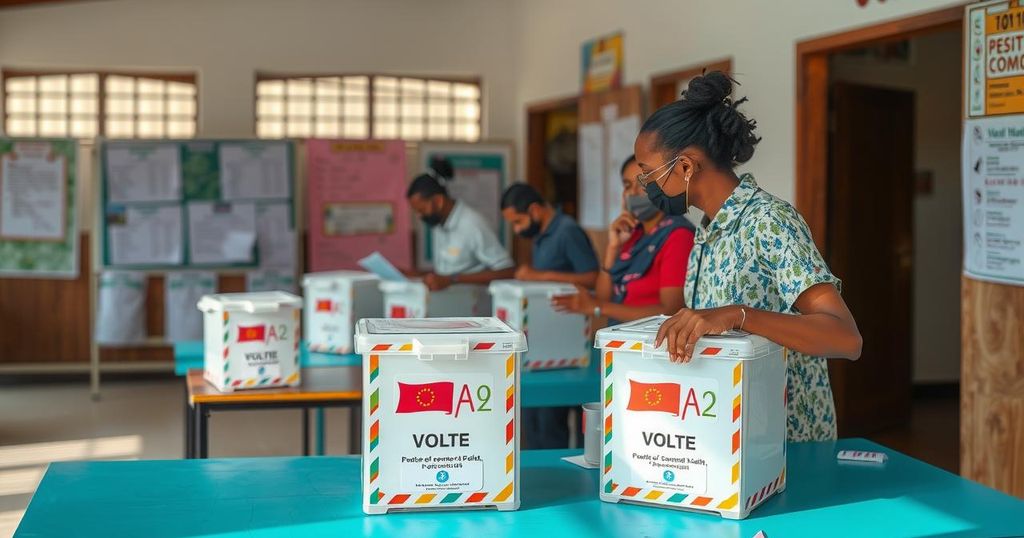Comoros Voters Head to Polls for Controversial Parliamentary Elections

Voters in Comoros are electing members to a 33-seat parliament amid allegations of electoral misconduct following President Azali Assoumani’s controversial re-election. Approximately 338,000 voters are participating, while almost 100 candidates compete. The opposition is divided between calls for boycott and participation, signaling a crucial moment in Comorian politics. Results are expected by Friday.
Voters in Comoros are participating in elections to select members of the nation’s 33-seat parliament, following a contentious period after the re-election of President Azali Assoumani last year, which the opposition claims was characterized by significant electoral irregularities. Despite these allegations, which have been denied by officials from the ruling party, approximately 338,000 registered voters are heading to polling stations across the Indian Ocean archipelago, which last held parliamentary elections in January 2020.
Close to 100 candidates have been cleared by the Supreme Court to vie for the parliamentary seats. Assoumani’s critics continue to voice concerns regarding his authoritarian governance and speculate about his intentions to position his eldest son, Nour El-Fath, to succeed him after his term concludes in 2029. Assoumani has held power since 1999, initially via a coup, and has since secured three electoral victories, consolidating power significantly, particularly with the recent elevation of his son to key governmental roles in 2024.
There are divided opinions within opposition factions regarding the election; some, including the Juwa party led by former President Ahmed Abdallah Sambi—who is serving a life sentence—have urged a boycott, whereas others, such as the Hope of the Comoros party, consider participation an opportunity to challenge the regime. Hamidou Karihila, representing the latter, articulated that engaging in the electoral process highlights the regime’s deficiencies and accelerates its anticipated decline. Election results are anticipated to be announced by Friday.
The electoral landscape in Comoros has been turbulent, particularly after the controversial re-election of President Azali Assoumani. The political climate is charged with accusations of authoritarianism and potential dynastic succession, as Assoumani appears to be grooming his son for future leadership. This context is crucial in understanding the stakes of the current parliamentary elections, characterized by a divided opposition and various strategic responses to the ruling party’s dominance. The call for a boycott by some opposition parties underscores the complexities of the political dynamics at play in this election.
The parliamentary elections in Comoros are set against a backdrop of political tension and accusations of electoral malpractice. With a significant portion of the opposition urging a boycott, yet others advocating participation, the outcome could significantly impact the future political trajectory of the nation. The anticipated results are expected to reveal much about the current regime’s stability and the opposition’s influence moving forward.
Original Source: www.stawelltimes.com.au








